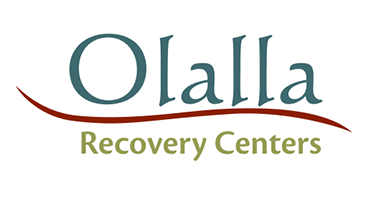
24 Apr Why the Alcohol Epidemic Matters to All of Us — Especially in the Times of a Pandemic
New research published early this year showed that alcohol abuse has reached an epidemic level in the United States. Nearly 1 million Americans age 16 and up have died in less than a decade due to alcohol — surpassing drug overdoses by almost 300,000.
This trend is concerning by itself, by the COVID-19 pandemic makes it even more so. Alcohol consumption can weaken the immune system, making individuals more vulnerable to this novel coronavirus. And according to market research and media reports, sales of alcohol have climbed in March — indicating the potential of alcohol abuse.
Why the alcohol epidemic matters
The topic of drug abuse gets a lot of well-deserved attention. The discussion about alcohol, on the other hand, takes a back seat. Yet, as the new research from the National Institute on Alcohol Abuse and Alcoholism shows, alcohol abuse is an even bigger problem, even if it doesn’t get as much of the spotlight.
From this latest study, researchers learned that almost half of the recorded deaths were due to liver disease or overdose from either alcohol alone or mixed with other drugs. It’s a problem that touches all generations — while death rates were higher in the 45-74 age category, individuals aged 25-34 saw the most increase in deaths due to chronic use.
Alcohol consumption can be a touchy subject. It’s socially acceptable, after all. Many of us enjoy it at family gatherings and at celebrations of life’s significant milestones, from weddings to birthdays.
But it’s important to understand the difference between a casual drink for a social occasion and harmful behavior. When someone drinks due to depression or other mental-health issues, or when alcohol negatively impacts an individual’s home and work life, there’s cause for concern.
The impact of the pandemic
In these times of social distancing, widespread safety and health concerns, and economic uncertainty, it’s not surprising that many people are drinking more.
Humans are social creatures, and isolation alone can make many of us anxious. But when you add to that the disruption to our normal lives, the loss of livelihoods and fears for our health, coping in isolation can become unbearable. Alcohol becomes one of the “outlets” many people turn to.
We’ve also seen a lot of dangerous misinformation that may be fueling the increase in consumption. A myth circulating about alcohol’s ability to protect from COVID-19 has propagated in some countries to such a degree, that the World Health Organization has called for restricting access during the lockdown.
Not only does alcohol not protect you from the virus, it could actually make you more vulnerable by negatively impacting your immune system.
You may feel like alcohol helps you cope with stress, but it often has the opposite effect — it can actually increase anxiety and depression. Alcohol can also disrupt your sleep, which has further impact on your mental health.
Practicing good self-care and getting help
If you or your loved one is in recovery, or alcohol use is a concern, staying extra vigilant is more important than ever. Here are some simple tips to help you maintain mental wellness:
- Limit consumption of news and social media. The scale of the tragic life loss and the all-coronavirus, all-the-time news cycle constantly feeds your anxiety.
- Maintain a routine even if you’re not working. Go to bed at your regular time, exercise or go for daily walks (while observing all the safety measures) and practice other good self-care techniques like meditation and healthy eating.
- Keep in frequent touch with friends and family. We’re fortunate to have technology that allows us to still see each other face to face during quarantine, but even a quick phone call can be reassuring.
- Stay busy with fun activities. If you suddenly have a lot of time on your hands, why not learn that language you’ve always wanted to know, try your hand at gardening, take a free yoga class over video, or find one of the myriad livestreamed activities, from painting to aquarium life observations.
- Make sure to disconnect completely too. While technology is keeping us connected right now, you also need to give yourself time for quiet activities and reflection. Read a book, cook a healthy meal, start a journal if you don’t have one — find some things that you enjoy and don’t require screen time.
Don’t struggle alone. Telehealth mental health counseling and other services continue to be available, including through Gig Harbor Counseling.
As families, we also need to support each other during these times. We have provided a list of resources for families on our website, and will continue to expand it as more information becomes available.


